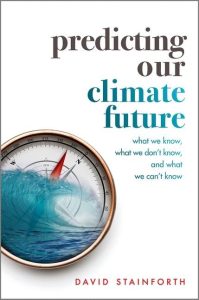philosophy
Externalist Explanations of Philosophy
Why did a particular philosophical view emerge or flourish at a particular time? Why did another fall into disfavor? Why are philosophers today thinking and writing about the particular questions, problems, ideas, and figures they are?

[photo by Justin Weinberg]
The kind of explanation philosophers typically turn to in thinking about these questions are what we think of as philosophical explanations. That is, we look to the arguments and objections in the relevant literature, the evidence and examples philosophers made use of, the explanatory power of the relevant ideas, and so on.
We look for philosophical explanations for a few reasons. First, they’re obviously relevant. Second, they’re what we’re trained to focus on. Third, since we’re so trained, we’re better at finding those kinds of explanations than others, and so success and any pleasure taken in it reinforces the practice. And fourth, they tend to strike us as the right kind of explanation. Perhaps this is a form of charitable interpretation: philosophers’ beliefs should be justified, so we look for the kinds of things that justification involves, such as reasons. Perhaps it is a form of self-flattery: we want the members of the club we’re a part of to have been doing things right.
But (and I know I make use of this phrase a lot, in lots of ways): philosophers are people, too. And just as the thinking of ordinary people in all sorts of ordinary contexts is influenced by various social, economic, political, institutional (etc.) forces to which they’re subject, so, too, are philosophers.
And so philosophical explanations of the course of philosophy are going to be, at best, incomplete.
Historians of philosophy often take the broader social context in which philosophers ideas emerge into account, to varying degrees, but it seems that lately we’ve been seeing in increase in more robustly “externalist” explanations of philosophy, and an increased receptiveness to them. Some of them have been mentioned at Daily Nous before (e.g., here).
In a recent example of this kind of work, “Critical Realism and Technocracy – RW Sellars’ Radical Philosophy in its Context,” Mazviita Chirimuuta (Edinburgh) describes an “externalist explanation” as “one which takes, as explananda, contextual factors rather than considerations pertaining to the internal logic of the arguments.” She adds:
Externalist explanations come in many varieties. A historian of philosophy of science who considers the practical benefits conferred by a philosophical view, such as realism, on practicing scientists, can avail themselves of one kind of externalist explanation; a historian who focusses on the mesh between a certain theory and pedagogical practices within the institutions that popularized it, has another kind. Most well known are the externalist explanations in the history of science referring to the social and political context within which a scientific movement has risen to prominence. [notes omitted]
I’m curious about a few things here:
- Do others agree there has been an increase in both the production of and disciplinary receptiveness to externalist explanations in philosophy?
- What are some further examples of this kind of work produced by people associated with philosophy departments?
- Since some of the skills and knowledge needed to produce externalist explanations (in part because they’re inherently interdisciplinary) are distinct from those that philosophers are typically trained in, does the increase in such work represent the emergence of something we should as a profession recognize as a subfield or area of specialization?
- Is the increase in externalist explanation a way that philosophy is “catching up” with other humanities disciplines? And if so, what might come of that?
and, of course:
- What is a good externalist explanation for the increase of externalist explanations in philosophy?
Discussion welcome.
(Thanks to Eric Schliesser for bringing Chirimuuta’s article to my attention.)
The post Externalist Explanations of Philosophy first appeared on Daily Nous.
In the modern world the stupid are cocksure while the intelligent are full of doubt
“The fundamental cause of the trouble is that in the modern world the stupid are cocksure while the intelligent are full of doubt. Even those of the intelligent who believe that they have a nostrum are too individualistic to combine with other intelligent men from whom they differ on minor points. […] Perhaps we shall […]
We Need to Facilitate Informed Debate about Israel-Palestine
Public Seminar's executive editor introduces an open letter reply to Normative Orders research center's "Principles of Solidarity" statement....
The Rise of English as the Global Lingua Franca of Academic Philosophy (guest post)
“We think it is more or less inevitable at this point that English will be the global lingua franca of academic philosophy for the foreseeable future. We also think it is for the most part a good thing. But it has also produced some problems…”
In the following guest post, Peter Finocchiaro (Wuhan) and Timothy Perrine (Rutgers) argue that “the rise of English as the global lingua franca of academic philosophy might lead to several epistemic goods being unjustly distributed in our community, including credibility, education, and the standing to speak.”

The Rise of English as the Global Lingua Franca of Academic Philosophy
by Peter Finocchiaro and Timothy Perrine
Academic philosophy is a global institution. Nearly every country has universities with philosophy departments. Philosophy journals are read around the world. And many philosophers grow up in one country, get a PhD in another, work in a third, and have students who come from a fourth. Like many global institutions, academic philosophy has increasingly relied on English as a shared language for communication—as a global “lingua franca”. When a Finnish philosopher meets a Colombian philosophy at a conference in Japan, they will likely do philosophy in English.
We think it is more or less inevitable at this point that English will be the global lingua franca of academic philosophy for the foreseeable future. We also think it is for the most part a good thing. But it has also produced some problems for our community—problems that we think need to be analyzed and addressed so that philosophy can be more inclusive.
To get a sense of the kinds of problems we have in mind, consider the following case. A philosopher is fluent in English, having learned it as a second language. Their academic research consists in reading and writing in English. But a recent referee report complains that their paper is “not idiomatic” (even though the referee doesn’t identify a single passage that is unclear, disorganized, or obscure) and requests that the philosopher have their paper checked by a “native” speaker of English. So, to appease the referee, the philosopher reaches out to a “native” English speaking colleague. Both philosophers then spend some time trying to guess what’s not “idiomatic” so that the language can be “fixed” and the paper can be published.
Maybe this sort of thing hasn’t happened to you. But it’s almost certainly happened to someone you know or someone that you’ve read. It has happened several times to our coworkers and friends.
In a new paper of ours, we argue that these problems are instances of language-related injustice. The paper is part of a new special issue of Philosophical Psychology on understanding bias. Thanks to the generous support of Lex Academic, it is freely accessible here for 12 months as the winner of the Lex Academic® Essay Prize for Understanding Linguistic Discrimination.
As we argue in the paper, in the above case the philosopher gets labelled as a “non-native” speaker of English and is held to certain linguistic norms set by a “native” English speaking community. But satisfying those norms is unnecessary for understanding their paper. We analyze this and other cases using the framework of epistemic injustice, specifically distributive epistemic injustice (though we think there can be other frameworks that are also useful). We argue that the rise of English as the global lingua franca of academic philosophy might lead to several epistemic goods being unjustly distributed in our community, including credibility, education, and the standing to speak.
At the end of our paper, we consider some proposals for dealing with these. They are:
1A: Increase assistance with English—journals should provide English-language services such as proofreading at no cost to the author.
1B: Abandon “readability” standards—journals should stop evaluating submissions on the basis of “readability”, including how “idiomatic” the English is as well as its “flair” or “style”.
2A: Diversify the canon—philosophers (and journals) should engage with work from a wide range of traditions, not just the mainstream Western canon.
2B: Expand the SEP—articles written for the SEP should be translated into other languages and/or the SEP should commission original entries in other languages.
3A: Increase non-native English speaker representation—editorial boards of journals, admissions committees of graduate programs, etc., should include more non-native speaking philosophers.
3B: Increase cross-linguistic representation—journals should publish material that spotlights non-English language philosophy, especially that which is produced in non-Anglophone countries.
Readers may recognize some of these proposals. In 2021, Filippo Contesi created the Barcelona Principles for a Globally Inclusive Philosophy, which was discussed on Daily Nous here, with related discussion here. Contesi’s Principle 3 is almost identical to our Proposal 3A, and Principle 1 is very similar to our Proposal 1B.
In our paper, we briefly argue that the B proposals are better than the A proposals. As we see it, Proposal 1A is likely to just reinforce unnecessary linguistic norms that privilege native speakers; a better alternative, as expressed by Proposal 1B, is to abandon the enforcement of those linguistic norms. Proposal 2A is admirable and in general we favor diversifying the cannon. But we doubt it would do much to address the linguistic injustices we are worried about. A better alternative, as expressed by Proposal 2B, is to make current high-quality research more accessible to people from different linguistic backgrounds. Proposal 3A is similarly admirable, but non-native speakers are likely already overburdened with administrative tasks. A better alternative, as expressed by Proposal 3B, is to increase the representation of current research from philosophical communities working in languages other than English.
Maybe our evaluation of these proposals isn’t exactly right. We’re open to being corrected about that since an adequate evaluation should rely on a complex balance of empirical facts, personal experiences, and communal structures that we can’t claim to be experts in. We’re more interested in bringing greater attention to the conversation that Contesi and others have started: what should be done about the problems caused by English becoming the global lingua franca of academic philosophy? Indeed, since the both of us are “native” speakers of English, we’re eager to hear more from others, especially “non-native” speakers.
So let us know what you think of these proposals, and let us know what you think about other proposals that we haven’t mentioned. Additionally, we’d be interested in hearing about people’s experiences that don’t neatly fit into the cases we give above or in the full paper. At the end of the day, what we want is for academic philosophy to be more inclusive for all of its members around the globe.
The post The Rise of English as the Global Lingua Franca of Academic Philosophy (guest post) first appeared on Daily Nous.
Philosophy and Christmas Cards, Soup to Nuts
‘Tis the season, so I designed a card.  (You may purchase it here if you like. Or any other comparably inappropriate product. I do feel more people ought to confound loved ones by gifting them my socks.)
(You may purchase it here if you like. Or any other comparably inappropriate product. I do feel more people ought to confound loved ones by gifting them my socks.)
On to further scholarly matters!
Ludwig Wittgenstein, his friends said, insisted on ‘soupy’ Christmas cards.
In Wittgenstein in Cambridge: Letters and Documents, 1911-1951 we read that Moore, Russell and Keynes were scrupulous about document preservation, as a result of which many Christmas cards from Wittgenstein are preserved:
It is of some interest to note that while from Vienna Wittgenstein would send chaste cards with Biedermeier views of the Josefplatz or the like – the sort of thing his sisters would oder from a Kohlmarkt stationer in boxes – his English cards were chosen especially for the banality of the illustrations and of the accompanying verses, as for example:
If wishes count, you’ll surely have
Life’s blessings rich and true
For I am wishing from my heart
Such good things all for you.These were not the cards usually exchanged at Cambridge, but (it is legitimate to suppose) the clumsy sincerity of a different level of English life was more acceptable to him; and, as for taste, he was chiefly concerned to avoid the half and half.
At this point there is a footnote, indicating his friend Thomas Redpath described him as ‘avoiding the aesthetic’ on such festive occasions. And, in a letter to Norman Malcolm, he instructed: “tell Doney, his Christmas card wasn’t soupy enough.”
One of Wittgenstein’s soupy cards can be viewed here.
And the interior shows this:
And now it gets interesting! You see how Wittgenstein notated, by hand, in ink, the meter – the stresses – for proper reading of the poem.
At this point we shift to read in Lectures and Conversations on Aesthetics, Psychology and Religious Belief.
Take the question: “How should poetry be read? What is the correct way of reading it?” if you are talking about blank verse the right way of reading it might be stressing it correctly – you discuss how far you should stress the rhythm and how far you should hide it. A man says it ought to be read this way and reads it out to you. You say: “Oh, yes. Now it makes sense.” There are cases of poetry which should almost be scanned – where the metre is as clear as crystal – others where the metre is entirely in the background. I had an experience with the 18th century poet Klopstock. I found that the way to read him was to stress his metre abnormally. Klopstock put u-u (etc.) in front of his poems. When I read his poems in this new way I said: “Ah-ha, now I know why he did this.” What had happened? I had read this kind of stuff and been moderately bored, but when I read it in this particular way, intensely, I smiled, said: “This is grand,” etc. But I might not have said anything. The important fact was that I read it again and again. When I read these poems I made gestures and facial expressions which were what would be called gestures of approval.
In short, what a nut.
He sent his friends ‘soupy’ Christmas cards as a sort of determined embrace of the ordinary – or avoidance of the aesthetic, or call it what you will. If you know Wittgenstein you know that he went in for this a lot, one way or another. A blog post isn’t the place to settle the fraught issue of Wittgenstein’s relationship with ‘ordinariness’. But note the irony. It wasn’t enough just to send soupy cards. He had to notate the metre to tell his friends exactly how to read them just right. Again, this was a thing with him. You might even say: his whole later philosophy was all an attempt to instruct students in how to be properly ordinary about it all. Like, exactly.
At any rate, noticing this about his card caused me to make gestures and facial expressions which were what would be called gestures of bemusement.
What sort of philosopher cares so much about Christmas cards?
In Which Areas of Philosophy Should We Expect Faster Progress?
On what we can call the answers model of philosophy, the primary aim of philosophy is to learn philosophical truths, and a primary form of philosophical progress is learning true answers to “the big questions of philosophy,” as David Chalmers (NYU) puts it.

Though the answers model says progress consists primarily in learning philosophical truths, it does not imply that the only form of progress is actually attaining such truths (as Chalmers happily acknowledges). Just as we can make progress towards building a house before putting up a single wall, so too could we make philosophical progress before coming close to converging on a correct answer to a big philosophical question. With both projects, there are many preliminary steps.
So the answers model does not imply that our lack of convergence on correct answers to big philosophical questions is thereby lack of philosophical progress. If we have taken some of the preliminary steps towards convergence on such answers, then that is a form of progress in philosophy.
One difficulty, of course, is that it is unclear whether we are taking the correct preliminary steps. We know that surveying the land, drawing up blueprints, pouring a foundation, etc., are steps towards the construction of a house. Good evidence for this comes from humans having had many experiences of successfully building houses. Our apparent lack of experience successfully answering big philosophical questions means that there’s a conspicuous gap in the evidence we could gather to show that the preliminary steps we’ve taken are steps in the right direction.
I think a defender of the answers model could reply: well, we do have experience unsuccessfully answering big philosophical questions, and failures can be a form of progress, too—we can learn what doesn’t work, and why.
Though I’m not a fan of the answers model, I do think there’s something to that reply, and I would imagine there is more that could be said in its defense. At the very least I think the answers model is worth exploring, and I’m about to ask for your help in that exploration.
Suppose the answers model is correct, that we have some reasons for thinking that at least some of the philosophical activities we engage in are proper preliminary steps towards answering big philosophical questions, and that taking such preliminary steps counts as progress in philosophy. Given these suppositions, in which areas of philosophy, or on what big questions of philosophy, should we expect faster progress?
One possible answer is “none”; that is, there’s no reason to think that some areas or questions of philosophy lend themselves to faster progress. But I suspect that relatively few philosophers have that view. There are a variety of topics and questions in philosophy, and I don’t see a strong reason for thinking that they are uniformly susceptible to our efforts.
Another possible answer might be: “in new areas or on new big questions.” The idea here would be that in any new area, there’s a lot of low-hanging fruit and so a lot of progress can be made relatively quickly picking it. That may be the case, but it may be more interesting to put that aside and instead consider progress in subfields we no longer consider immature.
So what’s your view? In which parts of philosophy should we expect more progress sooner, and (at least briefly) why?
The post In Which Areas of Philosophy Should We Expect Faster Progress? first appeared on Daily Nous.
Q and A with David Stainforth on Predicting Our Climate Future: What We Know, What We Don’t Know, and What We Can’t Know
We speak to David Stainforth about his new book, Predicting Our Climate Future: What We Know, What We Don’t Know, and What We Can’t Know, which argues for a re-evaluation of how we go about the study of climate change in the physical sciences, the social sciences, economics and policy.
You can watch a public LSE event with David Stainforth to launch the book from October 2023 on YouTube here.
Predicting Our Climate Future: What We Know, What We Don’t Know, and What We Can’t Know. David Stainforth. Oxford University Press. 2023.
 Q: Where did the idea for the book come from and what were you setting out to do in writing it?
Q: Where did the idea for the book come from and what were you setting out to do in writing it?
Between 2000 and 2015, I became aware that my perspective on what we should be trying to do in climate change science wasn’t at all reflected in the practice of research in research institutions. It seemed to me important to write something that would engage people with all the fascinating challenges that exist in understanding the problems of climate change. Doing so, I hoped, would help make clear the separation between what we know and what we don’t know.
Many big, fundamental, questions – philosophical, mathematical, physical, and economic questions – about climate change tend not to be examined, probably because of the urgency for society to act.
If I was a sixth-former now, I would certainly see climate change as an important issue for society, but I’m not sure I would be passionate about trying to understand it. That’s because it appears that we already understand it, although in fact we don’t. Many big, fundamental, questions – philosophical, mathematical, physical, and economic questions – about climate change tend not to be examined, probably because of the urgency for society to act. My book addresses these questions. I would love for my book to stimulate high-school students and undergraduates across diverse disciplines to say, actually, there’s something really fascinating to get my teeth into here; something that humanity hasn’t yet understood.
Of course, none of this undermines the importance and urgency of acting on climate change, but acting and understanding need to go hand in hand.
Q: What are the limitations of scientists’ understanding of the climate system? How do these affect our ability to predict how the climate will change?
The central issue is complexity and there are two aspects of complexity that create a barrier to predicting what the climate future will look like.
The climate system is made up of many components – the atmosphere, the oceans, land ecosystems, ocean ecosystems, biogeochemical systems, the cryosphere etc. Many of these can be broken down further into subsystems, and all of this is before you get into the social aspects. The first aspect of complexity is simply how these many disparate components interact.
Certain types of system, like the climate system, have real barriers to predictability because what happens in the future can be very sensitive to the state of the system today. This is what’s meant by the “butterfly effect”.
The second aspect of complexity is more mathematical. Certain types of system, like the climate system, have real barriers to predictability because what happens in the future can be very sensitive to the state of the system today. This is what’s meant by the “butterfly effect”. At the same time, the relationship between our models and reality is unclear: how close does a model have to be to reality for it to be able to tell us something about how reality will behave? That’s a difficult question to answer; it might be that our models could represent reality very closely, but still provide unreliable predictions. This is something that Erica Thompson has named the “hawkmoth effect”; it’s something we haven’t really begun to study.
These types of complexity affect how we should be designing our climate models and what sort of experiments we should run with them.
Q: What do Global Climate Models (GCMs) do and what are their limitations?
Global Climate Models break down the atmosphere and ocean into grid points and at each grid point they solve the equations of motion to tell us how things change over time. This is what’s known as a reductionist approach to modelling, and it allows us to work out what the state of the atmosphere or ocean system might be at some point in the future. Solving the equations on a computer can typically only tell us how things will change over about 10 minutes, so you’ve got to repeat the process millions of times to get information for 100 years ahead.
There are lots of elements of the climate system that can’t be modelled [in a reductionist] way, either because we don’t know what the fundamental equations are or because the processes take place on scales that are far too small to include in the models.
But there are lots of elements of the climate system that can’t be modelled that way, either because we don’t know what the fundamental equations are or because the processes take place on scales that are far too small to include in the models. Examples include how ecosystems absorb and release carbon dioxide and how clouds and rainfall form. For these components there are various different ways to approximate the processes at play, but it’s not easy to know how reliable these approximations are. And because all aspects of the climate system affect all the other aspects of the climate system, this means that the model predictions can’t simply be taken as predictions of reality.
Q: Why do we rely so heavily on GCMs for climate prediction and policy development today? Is there a danger in relying too heavily on these models?
When we study climate change, we don’t have multiple climates to examine. The time scales and the system are defined: it’s our real-world climate system that we’re interested in, and how it will change through the 21st century. We are doing an experiment on the real climate system through humanity’s emissions of greenhouse gases, but we’ll only ever get one result, and that will come too late to be of much use to us. The models enable us to study what we can’t study in reality – for instance, multiple possible scenarios of future greenhouse gas emissions. But we need to always remember that we’re studying a model, not reality. The power, the detail and the ubiquity of the models encourages us to avoid asking the big questions about how the model predictions relate to reality – whether what they’re telling us is actually what we think will happen.
When we study climate change, we don’t have multiple climates to examine. The time scales and the system are defined: it’s our real-world climate system that we’re interested in, and how it will change through the 21st century.
Research on climate, particularly with models, has grown out of work on weather forecasting. The reliability of weather forecasts over the last 20 to 30 years has massively improved, principally because of these models. But in the shift from weather forecasting to climate forecasting, we are dealing with a fundamentally different problem. In weather forecasting, we don’t need to get the whole of the climate system right: it’s mainly just about simulating the atmosphere. Furthermore, we repeat the weather forecasting process three or four times a day, so we can compare the model’s predictions against what happens in reality. That means we can test whether our models are doing a good job in a way that is impossible for climate predictions
With climate, you need to bring in many other elements of the climate system, including oceans and ecosystems, and we don’t have the same possibility to verify the results. This puts us in a very different domain, but the problem is that it doesn’t feel that way. It feels as though weather forecasting and climate predictions are very similar because they use similar, related models. This represents a barrier to using the models effectively to help us provide reliable information about future climate.
Q: Why do you argue that greater diversity of climate models rather than greater “realism” of climate models should be the goal for better climate prediction?
Aiming for realism tends to take us to higher and higher resolution models. These models represent atmospheric behaviour better and they look more realistic, but this lulls us into a false sense of security. Despite the “realistic” appearance of these models, we can’t tell if they are accurate because we’ve never observed the planet in the warmed state that we’re interested in.
High-resolution models also take a lot of computing time to run, and consequently they remove the possibility of exploring other uncertainties such as how we represent the carbon cycle or biogeochemical processes. There’s a substantial risk therefore that we adapt society to be resilient to the changes in our models, when what might actually happen could be very different.
If […] we were to address different ways of building our models and of accounting for the many uncertainties, this would give us a diversity of predictions.
If instead we were to address different ways of building our models and of accounting for the many uncertainties, this would give us a diversity of predictions. Having a better understanding of the wide range of different changes that could plausibly happen would enable us to be better prepared and is, in my view, crucial to building a robust response to climate change.
Q: How does the separation between disciplines, which approach the issue in very different ways, hamper our understanding of, and ability to act on, climate change?
Assessments of the economics of climate change and of the consequences for our societies, for our wealth, for our welfare etc., often don’t take sufficient account of the uncertainties in the physical science. There is a real need for economists to understand the processes of the physical sciences better.
Assessments of the economics of climate change and of the consequences for our societies, for our wealth, for our welfare etc., often don’t take sufficient account of the uncertainties in the physical science
However, if we want the physical climate sciences to help us prepare effectively for our future world, then we need to ask, what are the questions that are being addressed by agricultural scientists, by city planners, by economists and by policy makers. Only when we are clear what kind of information is being sought, can we direct the physical sciences in a useful way. At the moment, the physical scientists set the questions and pass on the resulting information to social scientists rather than focusing their experiments and models on what social scientists and society need to know most.
We are stuck in a traditional approach which is not serving society well.
Q: How could we enable greater interdisciplinary research around climate change?
We require big changes in how we do climate change research. We need to be a lot clearer about what we’re trying to address and how the connections between disciplines work. I think that means high-level change to how we study the problem.
Historically climate change research has been very siloed, as academia generally is. There is a need for the research funders to grasp the nettle of wholesale change and for universities and research institutes to come together and create career paths that enable people to research across disciplinary boundaries.
There is a need for the research funders to grasp the nettle of wholesale change and for universities and research institutes to come together and create career paths that enable people to research across disciplinary boundaries.
I don’t think the importance of multidisciplinarity for understanding fundamental features of the threats posed by climate change has been fully recognised. There are still many funding calls that are essentially answer-driven. It’s a “tell us what will happen to this bit of the system” approach, but that’s not what climate change is. You can’t tell what’s going to happen to one aspect without connecting it with everything else. It’s a big, complex problem and needs to be addressed as such.
As a starting point we need funding – 10, 20 million pounds – for a centre that can bring truly diverse researchers together from philosophy to physics to economics, and give them the stability of five to 10 years to work on these problems together. That’s the starting place for better information about our climate future. It’s also the starting place for training a cohort of experts who have both the breadth and depth of knowledge to be able to build climate resilient societies and communicate what climate change risks actually look like.
Note: This interview gives the views of the author, and not the position of the LSE Review of Books blog, or of the London School of Economics and Political Science. The interview was conducted by Anna D’Alton, Managing Editor of LSE Review of Books.
Main Image: Arctic sea ice by Kathryn Hansen / NASA on Flickr.
What Are Some of Your Sayings? (for World Philosophy Day)
[The following was originally published on August 1, 2014. I thought that revisiting the question could be a fitting and fun activity for World Philosophy Day, which is today.]

[Tom Wesselmann, “Study for Mouth, 8”]
If I’m remembering correctly, T.M. Scanlon recounts a story in which a person sitting next to him on a plane asks him what he does for a living. Scanlon admits he is a philosopher, and the fellow passenger asks, “What are some of your sayings?” Jonathan Wolff has an old column that mentions this story (he has apparently heard a few different versions, so perhaps he did not have Scanlon in mind), and he takes the point of telling it to be to “illustrate the deplorable ignorance of the sort of person” who would ask such a question. But I don’t think the story was initially intended that way. I recall a certain kind of ruefulness to it. A sense that, at least in part, it’s a pity that we don’t have something pithy and practical and memorable and wise to say to nonexperts that could convey some of our ideas, that we don’t live up to the popularly imagined ideal of the philosopher.
I think philosophers should have sayings and be untroubled to share them with the public. They are good PR for philosophy, I think, and at the very least they are helpful mnemonic devices.
Hilary Putnam cautions: “any philosophy that can be put in a nutshell belongs in one.” Fine. Don’t put the whole philosophy in the nutshell. There may be specifications and qualifications and exceptions and justifications left out. Your fellow philosophers will tacitly understand that. If you see your sayings as prompts for further reflection, rather than as comprehensive summarizations, you will be able to give people an idea to take with them and think about, without feeling as if you are being philosophically careless.
The post What Are Some of Your Sayings? (for World Philosophy Day) first appeared on Daily Nous.
Philosopher Chosen to Lead Center on “Computation and Just Communities”
Dartmouth University earlier this fall launched its Susan and James Wright Center for the Study of Computation and Just Communities, and named philosophy professor Susan Brison as its inaugural director.

The interdisciplinary center focuses on
understanding the role of computation in informing essential questions about good governance, human rights, and the relationship between governments and the governed. Using tools such as computer simulations, machine learning, artificial intelligence, and complex statistical analysis, initiatives supported by the center will explore a broad range of topics, many of which expose the double-edged sword of computational advances in the public and governmental sphere. The topics will include the dynamics of surveillance and safety, the protection of free speech in a time of widespread of misinformation, and the dangers—as well as the artistic possibilities—of image manipulation and creation.
The center will host workshops and lectures, and fund research.
More information here.
The post Philosopher Chosen to Lead Center on “Computation and Just Communities” first appeared on Daily Nous.
NeuroDiving: a Show about Neurodivergence and Philosophy
NeuroDiving is a new philosophy podcast, radio-quality in its production, about neurodivergence.

Created and hosted by Amelia Hicks (Kansas State) and Joanna Lawson (Oklahoma State), NeuroDiving has just begun its first season, which is focused on autism.
Its first episode is on the contentious state of autism research, and features an interview with Chloe Farahar.
Professor Hicks writes:
The following four episodes focus on the myth that autism is a “theory of mind deficit.” We investigate where the concept of “theory of mind” came from, how the “theory of mind deficit” view of autism has affected autistic people, what went wrong with the scientific research that was used to support this myth, and how we can improve autism research by reflecting on the values that drive scientific practice. Other guests on Season 1 include Daniel Dennett, Tobi Abubakare, Travis LaCroix, Joe Gough, Heidi Maibom, and Ryan Althaus.
She adds that the podcast “will be of interest to people who want to learn more about neurodivergence, philosophy, and the social sciences. And it might be a useful teaching resource for some of your readers.”
You can listen to a trailer for the show here.
The program is in part the product of training provided by the Marc Sanders Philosophy in the Media Initiative.
The post NeuroDiving: a Show about Neurodivergence and Philosophy first appeared on Daily Nous.

